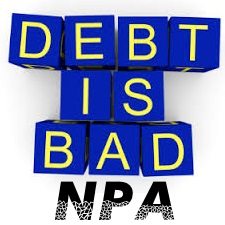Obligations of Bankers towards Customers
Table of Contents
Obligations of Bankers towards Customers
The relationship that arises between banker and customer, in conducting, various businesses involve certain obligations and rights on the banker as well as the customer.

1. Obligation to Pay Cheques
It is a statutory obligation of the bank, having sufficient funds of the customer to pay cheques duly drawn and presented. A bank will be forced to compensate the customer for any loss or damage caused by its default. The bank’s liability for wrongful dishonor of cheque is of serious nature. The bank will be forced to pay exemplary damage to the customer. However, bank may refuse payment of a cheque for reasons such as
- Insufficient funds in the account
- Cheque is not properly drawn
- Cheque is stale (presented after stipulated date)
- Cheque is crossed but presented for cash
- Cheque is received after receipt of notice of death, insolvency or lunacy of the drawer of the cheque.
So also, when instructions are received from the drawer to stop the payment of cheque or when attachment / garnishee order is received from a competent authority, payment can be refused. If the drawer’s signature differs, bank can refuse payment and also when the amount of the cheque differs in words and figures.
2 Secrecy
It is one of the principal duties of the banker to maintain complete secrecy of the status of customer’s account and failure to do so will make the bank to compensate the customer for any damage or loss suffered. However, a bank is justified in making disclosure, under the due process of law or under express or implied consent of the customer.
Disclosure in the bank’s interest is permitted. So also it is an accepted custom among the bankers to disclose certain information to a fellow banker on written request. While disclosing information to others, only bare facts should be revealed and not any comments and conclusions on the matter. The disclosing bank should indicate to the other bank that in turn it should maintain secrecy.
3. Banker ‘s Lien
Lien generally is the right of the creditor to retain possession of the goods and securities owned by the debtor until the debt is repaid. It however, does not vest the right to sell the goods. But the banker’s lien has a wider connotation. It is an implied pledge.
The bank has the right to sell the subject matter in possession in the ordinary course of business as a banker, and adjust the unpaid debt. Lien may be a general or particular lien. General lien empowers the bank to retain all movables in its possession but particular lien gives the right to retain the goods or property connected with particular debt.
Banker’s general lien is not applicable to safe custody articles, documents / money deposited for specific purpose and securities / valuables left through oversight.
4. Mandate
The account holder alone has the right to operate his account with the bank. No person other than the account holder can order the bank to debit the account. But the account holder can give mandate or a power of attorney to another person to operate his account.
A mandate is an authority given by the account holder in favour of a third person. This is issued by an account holder with a direction to his banker authorizing third person to operate the account. It is unstamped letter signed by the customer.
A letter of mandate is generally issued for a short period as a temporary measure. Mandate letter should not be accepted from the limited companies. A mandate will automatically lapse, on death, insanity, insolvency and bankruptcy of the account holder,
5. Power of Attorney
It is a document executed by the donor or principal in favour of donee or agent to act on behalf of the former as per authority given in the document. The following points must be taken into consideration by the banker while accepting power of attorney issued by the customer.
There are two types of power of attorney.
- Special Power, and
- General Power.
While the special power of attorney is given for a specific purpose, the other one covers many activities. Power to sign the cheque, stop payment, signing loan documents when given to Power of Attorney holder, the donor is ultimately liable to pay the loan amount. It is a stamped document. The original power of attorney should be perused and a copy should be obtained and filed with the Bank. The donor can withdraw or cancel the Power of Attorney at any time.
6. Circumstances Leading to Closure of Accounts
The relationship between the banker and the customer is established by mutual agreement open and operate the account. This relationship may be terminated at anytime by either party by closing the accounts. In fact, the banker-customer relationship imposes an implied obligation on the banker not to close the account of the customer except in extraordinary case supported by indisputable reasons.
In other words, the banker should carefully examine the issue before closing the customer’s account and unless there are justifiable reasons, it should not close the accounts of the customer.
A bank may take initiative to close the account of an undesirable customer after giving proper notice for the following reasons.
- Frequent return of cheque for insufficient balance.
- Forgery/malpractice committed by the customer.
However, a customer may close the account at any time.
7. Loans and Advances
As already said, the Bank deposits are used for lending or investment or both. In addition, bank handles purchase and sale of foreign currencies and also lends for import and export trade. The commercial banks lend money by way of overdrafts, demand loans, cash credit, or by way of purchase or discounting of bills of exchange or hundies, for the purpose of financing trade, commerce, industrial or any other business activity.
Lending by the banks is mostly against security such as goods, book debts, land and buildings, livestock, share, securities etc. When the advance is given against such security, it is termed as a secured advance and in cases where the advance is not backed by any security, it is classified as unsecured or clean advance.


